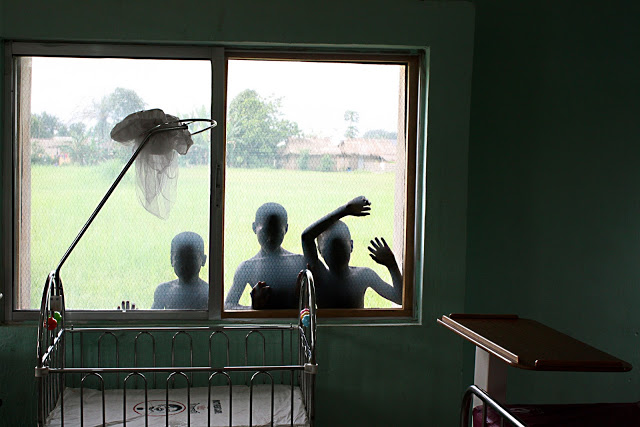The Niger Delta is a vast alluvial delta roughly the size of Scotland. Oil was discovered in the late 1950s in Ogoniland, in southeast of the region, and conflict, still unresolved, arose from the displacement of ethnic groups, in particular the Ogoni and the Ijaw. Scant compensation was given to these people, based on the lands original agricultural value, and not the value of the oil reserves beneath. As oil companies moved in to exploit the vast oil reserves, GDP from oil rose to over 50% by 2007.
Sadly as GDP rose, living conditions in the riverine communities failed to improve. With increasing oil infrastructure developing the towns of Warri and Port Harcourt, urbanisation grew, and traditional revenues from agriculture, including rubber, cotton and cocoa fell. Many ethnic groups felt alienated from the benefits of the oil industry, and little changed for the majority of subsistence fishermen and farmers in the region. Co-ordinated central investment in developing the infrastructure of the delta failed to materialise. With such vast oil revenues coming on stream the abuse of public office for private gain saw a sustained rise in corruption at the expense of the vulnerable. Figures from the World Bank estimate up to 12% of GDP or one trillion dollars was sequestrated by those in public office.
Despite the establishment of initiatives to develop the region (the Niger Delta Development Commission) tensions between foreign oil companies and ethnic groups created a volatility and unrest in the region. With increasing access to weapons, militant and criminal factions used hostage taking, sabotage and oil bunkering for both political purposes and illegal gain. Amnesty for these groups in 2009 has seen a reduction in these activities, but there remains a generation of youth with little, if any, opportunity to access meaningful education and work.
Pollution of the land and rivers has decimated fish stocks, and all Health, Mortality and Educational indices for this region remain in the lowest global rankings, despite this being at one time the sixth richest oil producing region in the world.The Millennial development goals to substantially reduce childhood mortality and morbidity across a variety of measurable indices has been undermined by corruption and lack of grass roots investment.
The story of the Niger Delta is complex, and draws in elements of human greed, corporate cynicism, opportunism, abuse of human rights, political indifference and regional isolation. There are multiple voices who will give varying accounts of this story, most with a partisan agenda. New Foundations has no political stance, and no affiliation to any particular viewpoint historically, but views the problems as characteristic of man’s innate propensity toward self-interest. We simply see before us people who will never have much of a voice, and are paying an unacceptable price in the rampant scramble for oil wealth. This is not to say local people are not complicit. Indeed, local acts of greedy self-interest sometime beggar belief.

There remain, however, many hundreds of thousands who will not get to the table, and we try, in our small way, to speak for them. There is simply no need in these days, in an oil-rich region, for malnutrition, failed educational and health programs and a populace where many remain scandulously in the bottom global centiles for health and income.
Difficult topography encourages people to gather in small communities. Of the estimated 13,329 settlements in the Niger Delta, approximately 94% have populations of fewer than 5,000 people (UNDP, (United Nations Development Report) Nigeria Niger Delta 2006: 15). De-centralised communities makes health care provision only relevant for most at a local community level.
In a 2003 NDHS survey, the Niger Delta had the largest proportion (34.8%) of respondents identifying the distance between their residence and health facilities as a major problem. In this same survey, nationally, 30.4% of women cited a lack of money as a barrier to accessing healthcare. In the Niger Delta, this was 47.1% and the highest regional figure (UNDP,2006.125).